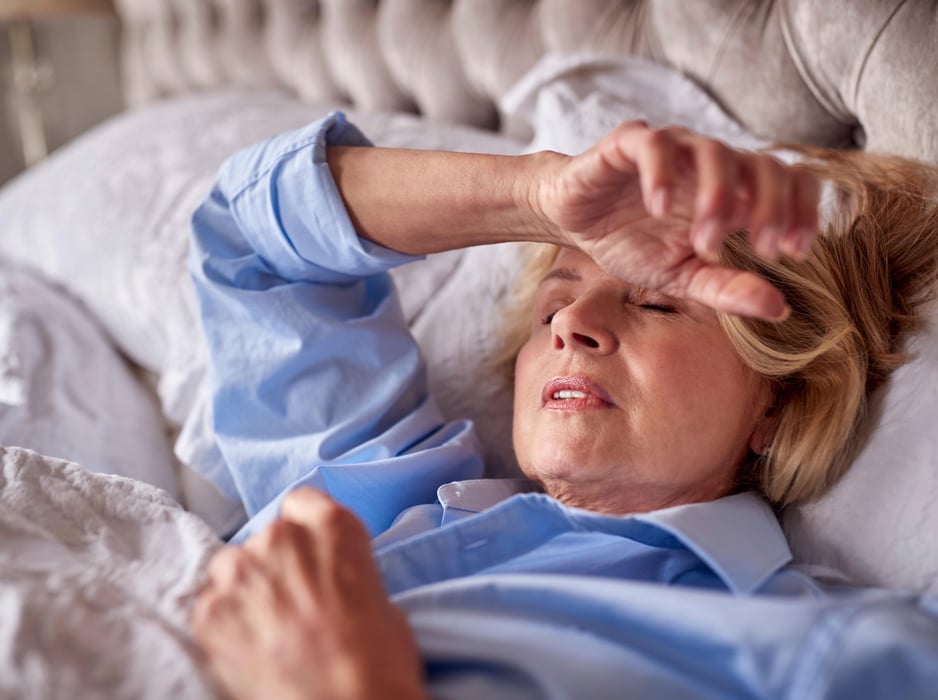Night Sweats May Be Even Tougher Than Hot Flashes on Women

FRIDAY, Oct. 14, 2022 (HealthDay News) -- It’s not anyone's idea of a fun choice, but researchers recently asked 200 women which part of menopause is worse for them – hot flashes or night sweats?
Both can significantly affect a woman’s quality of life, but night sweats may be the most stressful, their study found.
“We know that sleep disturbances are one of the biggest detriments for women going through menopause, but these results are unique because they show that women experiencing night sweats, rather than just hot flashes, may be at an even bigger disadvantage,” said study author Sofiya Shreyer, a graduate student in anthropology at the University of Massachusetts, Amherst.
Night sweats and hot flashes may sound similar, but they’re not the same. A hot flash happens day or night and may not include sweating. Night sweats are periods of intense perspiration during the night.
Night sweats were significantly associated with depression and stress. Even when they happened at night, hot flashes were associated with depression alone, the investigators found.
And women whose hot flashes happened more often at night had significantly higher depression scores than those whose hot flashes occurred most during the day.
“This study adds to the growing evidence that menopause symptoms such as hot flashes and night sweats can significantly detract from a woman’s quality of life and should be taken seriously by health care professionals," said Dr. Stephanie Faubion, medical director of the North American Menopause Society (NAMS).
"More research is necessary to fully understand the mechanisms of these symptoms and their overall effect on a woman’s menopause experience,” she noted in a NAMS news release.
The findings were scheduled for presentation this week during NAMS' annual meeting, in Atlanta. Findings presented at medical meetings should be considered preliminary until published in a peer-reviewed journal.
More information
The U.S. National Institute on Aging has more about menopause and its symptoms.
SOURCE: The North American Menopause Society, news release, Oct. 12, 2022
Related Posts
After Appeal, Court Rules Juul Can Still Sell E-Cigarettes for Now
MONDAY, June 27, 2022 (HealthDay News) -- A federal appeals court has ruled that...
New Competitor to Wegovy Shows Promise in Clinical Trials
TUESDAY, June 27, 2023 (HealthDay News) -- An experimental drug appears to...
Extreme Heat Can Take Toll on People Battling Mental Health Issues
THURSDAY, July 27, 2023 (HealthDay News) -- While the record-breaking heat the...
